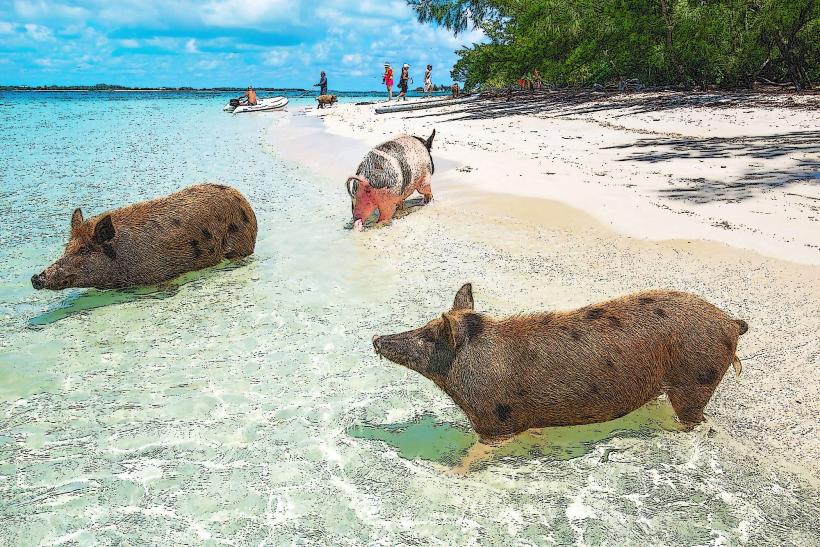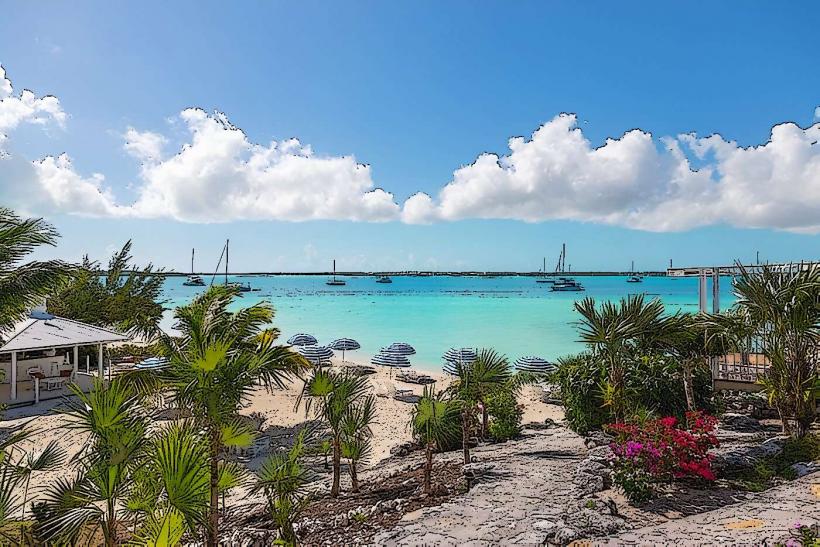Information
Landmark: Rolle Town TombsCity: Grand Exuma
Country: Bahamas
Continent: North America
The Rolle Town Tombs in Great Exuma, Bahamas, are an intriguing historical and cultural site that offers a glimpse into the island's rich history, particularly its colonial and post-emancipation eras. The tombs are named after the Rolle family, prominent in Bahamian history, and the settlement of Rolle Town, where they are located.
Historical Context
The Rolle Family and Their Legacy:
- The Rolle family played a significant role in Bahamian history, with connections to the period of British colonization and the system of plantation agriculture that shaped much of the Bahamas.
- The family name is closely tied to the emancipation of enslaved people. After the abolition of slavery in the British Empire in 1834, lands in this area were reportedly granted to freed slaves, many of whom took the surname Rolle in honor of Lord Rolle, a British aristocrat who allegedly facilitated their freedom or land acquisition.
Cultural Significance:
- The Rolle Town Tombs are believed to be the burial sites of prominent figures in the Rolle family and possibly other influential members of the community during that time.
- They stand as a reminder of the resilience and cultural heritage of the Bahamian people, particularly the descendants of African slaves.
Features of the Site
Tomb Design:
- The tombs are modest in structure, reflecting the simplicity of the era and the resources available at the time.
- The inscriptions, though weathered by time, provide valuable information about the individuals interred there, offering clues about their lives and contributions.
Scenic Setting:
- The site is located in Rolle Town, a small settlement on the eastern side of Great Exuma. It overlooks the turquoise waters of the Caribbean, adding a serene and picturesque quality to the historical site.
Visiting the Rolle Town Tombs
Location:
- Rolle Town is approximately 7 miles southeast of George Town, the capital of Great Exuma.
- The tombs are situated within the settlement and can be visited as part of a broader exploration of the area.
What to Expect:
- The tombs are a relatively quiet and off-the-beaten-path attraction, making them ideal for history enthusiasts and those seeking a deeper understanding of Bahamian heritage.
- There is limited signage or interpretation at the site, so visiting with a local guide is recommended for historical context.
Nearby Attractions:
- Combine your visit to the tombs with a stop at the nearby beaches or a visit to George Town, where you can find restaurants, shops, and additional historical sites.
Tips for Visitors
Travel with a Guide:
- To fully appreciate the historical significance of the Rolle Town Tombs, consider hiring a local guide who can provide stories and context about the site and its importance.
Respect the Site:
- As a historical burial ground, it is important to approach the site with respect and avoid causing damage to the tombs or surrounding area.
Best Time to Visit:
- Visit during the daytime to make the most of the natural light and enjoy the surrounding scenery.
Conclusion
The Rolle Town Tombs are a significant historical site that preserves the legacy of the Rolle family and the freed African slaves who established communities in the Bahamas. While small and understated, the tombs are a poignant reminder of the island's history, offering visitors a meaningful connection to the past. Whether you're a history buff or simply exploring Great Exuma, a visit to the Rolle Town Tombs adds depth and perspective to your journey.

























